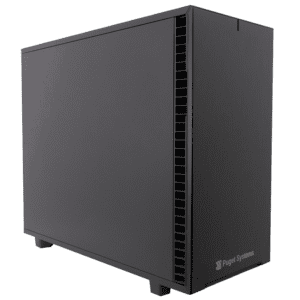TensorFlow 2.0.0-beta1 is available now and ready for testing. What if you want to try it but don’t want to mess with doing an NVIDIA CUDA install on your system. The official TensorFlow install documentations has you do that, but it’s really not necessary.
The Best Way to Install TensorFlow with GPU Support on Windows 10 (Without Installing CUDA)
In this post I’ll walk you through the best way I have found so far to get a good TensorFlow work environment on Windows 10 including GPU acceleration. YOU WILL NOT HAVE TO INSTALL CUDA! I’ll also go through setting up Anaconda Python and create an environment for TensorFlow and how to make that available for use with Jupyter notebook. As a “non-trivial” example of using this setup we’ll go through training LeNet-5 with Keras using TensorFlow with GPU acceleration. We’ll get a setup that is 18 times faster than using the CPU alone.
Install TensorFlow with GPU Support the Easy Way on Ubuntu 18.04 (without installing CUDA)
TensorFlow is a very important Machine/Deep Learning framework and Ubuntu Linux is a great workstation platform for this type of work. If you are wanting to setup a workstation using Ubuntu 18.04 with CUDA GPU acceleration support for TensorFlow then this guide will hopefully help you get your machine learning environment up and running without a lot of trouble. And, you don’t have to do a CUDA install!
Build TensorFlow-GPU with CUDA 9.1 MKL and Anaconda Python 3.6 using a Docker Container
Building TensorFlow from source is challenging but the end result can be a version tailored to your needs. This post will provide step-by-step instructions for building TensorFlow 1.7 linked with Anaconda3 Python, CUDA 9.1, cuDNN7.1, and Intel MKL-ML. I do the build in a docker container and show how the container is generated from a Dockerfile.
Build TensorFlow-CPU with MKL and Anaconda Python 3.6 using a Docker Container
In this post I go through how to use Docker to create a container with all of the libraries and tools needed to compile TensorFlow 1.7. The build will include links to Intel MKL-ML (Intel’s math kernel library plus extensions for Machine Learning) and optimizations for AVX512.
